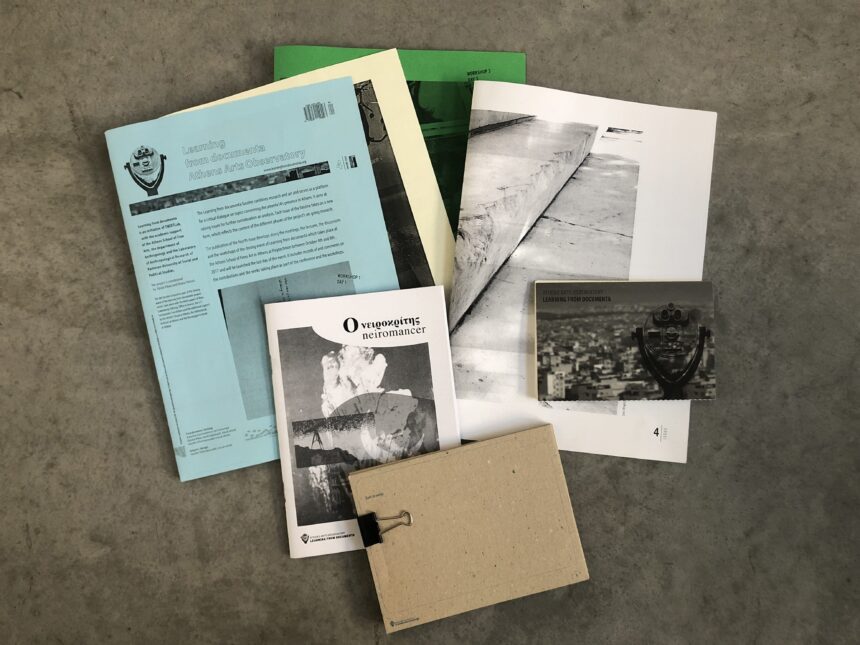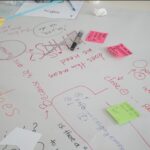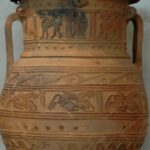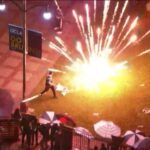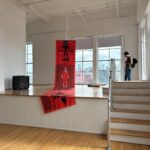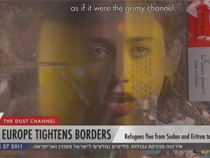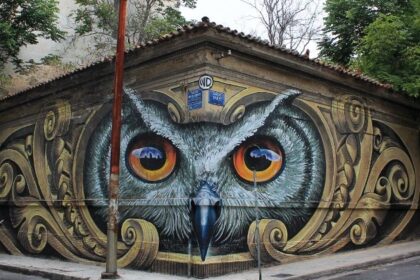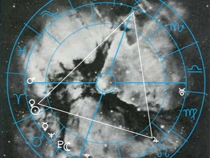Rushing to documenta 14
Vasiliki Sifostratoudaki
Rushing to documenta 14’s press conference sometime in March 2017, I grabbed a taxi together with three friends who were visiting Athens. Coincidentally we were all dressed in black. The taxi driver gave us curious looks through his mirror, turned to me in Greek and finally broke the silence:
“Can I ask you a question? Who are these people all over the city center, dressed in black and disrupting the traffic?”
An interesting and anecdotal conversation unfolded as I tried to detect if he was in any way aware of documenta 14 and the opening of the EMST, and if he carried any thoughts on art and museum culture. One thing was certain: the appearance of the contemporary art crowd had made an impact on him—an occurrence that was set to alter (temporarily or permanently as some might argue) the dynamics of the Athenian cultural scene.

I had recently returned to Athens after three years of absence due to studies abroad and had decided to perfuse myself with the cultural fabric of the city, engaging in a plethora of activities: as a member of the chorus for documenta 14 and of the Learning from documenta team; as an artist in residence at CAPACETE Athens [1] in the context of documenta 14; as an Athenian citizen, a woman, and an artist interested in embodied knowledge, various pedagogical forms and discursive modes of cultural production. An assemblage of multiple and complementary roles which would make the core of my experience of the city and the documenta 14 polyphonic allowed me to continually reconfigure my position through these different ways of engaging. Being part of the editorial team was pivotal as an undertaking with this configuration.
When Learning from documenta (LFD) invited me to join the team, I proposed working on a periodical publication—a concept that was well received as it had already been discussed within the group. Borrowing the best from fanzine culture and book making, we collectively conceptualized a series of four publications, each one unique in format, yet responsive to the previous ones in the series and to the ongoing exhibition as a whole.

A fanzine is a self-made publication that utilizes low-budget production and fast, spontaneous distribution. The personal tone of writing and arbitrary page order prioritizes image over text, thus giving the fanzine a spontaneous and responsive character. In contrast, a book involves a slower production timeline, often linking it to a bibliography and the library. The more stable format of the book invites close reading and longer engagement than that of the fanzine, which can be casually flicked through like a magazine, from which it borrows its name.
In the case of the Learning from documenta publication, the use of both a careful and low budget mode of printing production, equal attention given to the image and text, the responsive and reflective tone of the contributions, and a moderated yet spontaneous distribution, created a patchwork of priorities and positioned the mode of making in between the fanzine and the book.

(From the top: Vicky Tsirou and Grigoris Gougousis, Giulia Casartelli, and Caver) Photograph courtesy of Vasiliki Sifostratoudaki.
Establishing this as an ongoing research project, we perceived contributions for every edition and its public reception as material for further thinking and reflection on a diverse range of issues such as: the semantics of the social and historical constructions created by the chosen locations of documenta 14 and its parallel program; the theme/title of the exhibition; the ongoing discussions in Athens around art, as well as working conditions; methodology and aesthetics of art; museum practices; and the format and processes of documenta 14 developed between the cities of Kassel and Athens, focusing on the Athenian context.
The theme and the format of each one of the four editions in the series was the product of frequent curatorial meetings among the Learning from documenta members and the editorial team consisting of art historian Katerina Konstantinou, artist and anthropologist Elpida Rikou, and myself, an artist, graphic designer, and educator.
Partly conceived as an artist-curatorial gesture and a methodological tool as part of LDF’s communication strategy, these editions served to expand the idea of the archive from merely a registering mechanism to a responsive tool for a polyvocal accumulation of knowledge stemming from the experience of documenta 14 in Athens prior, during, and after its physical manifestation.
Printed matter thus became a tool that operated periodically, whose format varied in order to further enrich the interdisciplinary voice and nature of LFD’s existing discursive public program of presentations, readings, roundtables, and open conversations.
The Editions

Published in December 2016, the first edition took the form of a series of ten perforated postcards (that could be ripped apart and used separately), imitating similar fold-out travel sets often found in tourist kiosks around Athens, underlining the theme of tourism and pilgrimage suggested as way of viewing/ visiting the exhibition held between Greece and Germany, Athens and Kassel, adding another layer in the long historical trajectory of the two countries. The issue featured contributions by the LDF members as initial reflections οn/responses to the intentions of documenta 14 to “learn from Athens.”


The second edition, titled Oνειροκρίτης / oneiromancer, was the first bilingual (Greek and English) publication of LFD at a time when the politics of language had already started occupying the team’s research. It took the form of an A5, black-and-white, thirty-six-page booklet, printed with the use of a common photocopy machine. It consisted of a series of short sort texts as loose/soft contributions to oneiromancy—a form of divination based on dreams, from the Greek όνειρο oneiros (dream), and μαντεία manteia (prophecy)—bringing to the fore various aspects of knowledge stemming from the realms of ambiguity, expectation, speculation, desire, and affect in relation to a foreseeable future of documenta14 in the Athenian cultural landscape.

The third fanzine arrived during documenta14’s exhibition in Athens. Inspired by library archiving systems, it consisted of fourteen light-brown cardboard cards with visual and textual contributions printed in blue ink. Visual artists along with experts from the fields of anthropology, philosophy, and visual theory offered their critical view on specific artworks and/or art events of their choice featured in documenta 14 in Athens.

The fourth and final edition took the shape of a daily newspaper report stemming from the workshops that took place during the LFD’s four day closing event held at the Polytechnic School of Athens in October 2017. One month following the closing of documenta 14 in Athens, four multidisciplinary groups—Walking and Mapping, Ruinous Pasts, Presents (And Futures?), Southern Teachers, d14/Narratives Reshuffled— worked, among other things, on collective daily contributions to the fanzine in the format of folded A3s, echoing the progress of each workshop. Photocopied reproductions in colored paper of those contributions were distributed each morning to those attending the conference, accumulating in a single fanzine publication. At the closing of the four-day event, an additional poster-like page designed by anthropologist Christopher Wright was added to the final issue of the fanzine.

Reflecting on the role of the LFD publication series, I recognize their value as an integral part of the various research areas and topics Learning from documenta touched upon as a multidisciplinary study. I cherish their production as a process-based undertaking and a polyphonic reservoir of critical thoughts, anecdotes, reflective notes, and artistic contributions. Thinking beyond their archival attributes, I also wish to emphasize their distribution as a tactile tool contributing to the building of an extended network of academic thinkers, art practitioners, and cultural workers, who each served in getting the study across, productively contributing to the undertaking of learning from documenta team and enriching it in their own unique ways.
Endnote: I wish to extent my gratitude to Nikos Doulos and Sriwhana Spong for their meaningful contribution in the shaping of this text.
List of Contributors to the Editions: Christina Anagnostou (anthropology), Nikos Doulos (visual artist), Alexis Fidetzis (visual artist), Eva Giannakopoulou (visual artist), Gregoris Gougousis (anthropologist), Sofia Grigoriadou (visual artist), Fotini Gouseti (visual arts), Dimitra Kondylatou (visual artist), Arjang Omrani (anthropologist), Apostolos Lampropoulos (cultural theorist), Chrisoula Lionis (visual culture theory), Giorgos Samantas (anthropologist), Natasa Biza (visual artist), Elpida Rikou (anthropologist, visual artist), Vasiliki Sifostratoudaki (visual artist), Panos Skalvenitis (visual artist), Eleana Yalouri (assistant professor of Social Anthropology, Panteion University), Vicky Tsirou (art historian), Delia Tzortzaki (museologist), Fay Zika (philosopher, art theorist).
Coordinators and participants of the Learning from documenta Athens observatory conference workshop groups:
WORKSHOP 1 – WALKING AND MAPPING
Coordinators: Giorgos Samantas (anthropologist, sound designer) and Sofia Grigoriadou (visual artist; PhD candidate, Panteion University)
Participants: Alexine Chanel (visual arts), Nikos Doulos (visual artist; Capacete, Dutch Art Institute), Vivian Emmanouilidou (visual artist), Lucas Itacarambi (poet, musician, art mediator), Iraklis Kopitas (visual artist), Dana Papachristou (musician, musicologist; PhD candidate, Paris VIII & Ionian University), Herbert Ploegman (anthropologist, curator), Janna-Mirl Redmann (art historian, Arab studies; PhD candidate, University of Geneva), Elli Vassalou (visual artist; Kask & Conservatorium school of arts Ghent), Kathrin Wildner (anthropologist; HafenCity University Hamburg), Chris Wright (anthropologist; Goldsmiths University).
WORKSHOP 2 – RUINOUS PASTS, PRESENTS (AND FUTURES?)
Coordinator: Eleana Yalouri (anthropologist, archaeologist; Panteion University)
Participants: Campus Novel (art collective: Giannis Cheimonakis, Giannis Delagrammatikas, Foteini Palpana, Yiannis Sinioroglou, and Ino Varvaniti), Fotini Gouseti (visual artist; PhD candidate, University of Peloponnese), Giorgis Manoudakis (student of anthropology), Androniki Ntalla (archaeologist, art historian), Anna Pantelakou (student of theory and history of art), Sol Prado (visual artist), Giorgos Sakkas (anthropologist; University College London), Fay Zika (anthropologist, archaeologist; philosopher, Athens School of Fine Arts)
WORKSHOP 3 – SOUTHERN TEACHERS
Coordinator: Panos Sklavenitis (visual artist)
Participants: Jarri Castro (art critic and theorist), Αlkisti Efthymiou (museum studies, gender studies), Fabiana Faleiros (performer, art theorist), Alexis Fidetzis (visual artist), The Flower Girls (visual artists: Eleftheria Kotzaki, Christina Spanou, Dimitra Stamatopoulou), Vana Kostayola (visual artist, media theorist, curator, Chrisoula Lionis (visual culture theorist; University of New South Wales), Iris Lykourioti (architect; University of Thessaly), Pinar Ogrenci (artist, writer; founder of MARSistanbul, Eliana Otta (visual artist, cultural studies), Lykourgos Porfyris (visual artist; Kunstakademiet, Kunsthogskolen Marina Reyes Franco (art historian, curator Gian Spina (researcher, writer, visual artist), Kostis Stafylakis (visual artist, art theorist, curator; University of Patras), Adonis Stoantzikis (visual artist; Frank Mohr Institute), Michailangelos Vlassis-Ziakas (visual artist).
WORKSHOP 4 – d14 / NARRATIVES RESHUFFLED
Coordinator: Elpida Rikou (anthropologist, visual artist; Athens School of Fine Arts)
Participants: Christina Anagnostou (student of social anthropology; Panteion University), Nanne Buurman (art mediator; PhD candidate, Free University Berlin), Maria Juliana Byck (visual artist), Anastasios Fakinos (student of theory and history of art; Athens School of Fine Arts), Eva Giannakopoulou (visual artist), Vanessa Divani (student of theory and history of art; Athens School of Fine Arts), Grigoris Gkougkousis (student of social anthropology; Panteion University), Tatiana Ilichenko (visual artist), Dimitra Kondylatou (visual artist), Apostolos Lampropoulos (literary & cultural theorist; University Bordeaux Montaigne), Gwen MacGregor (visual artist; Assistant Professor, OCADU Toronto; PhD Candidate Geography, University of Toronto), Maria Nikoforaki (visual artist), Vasiliki Sifostratoudaki (visual artist, graphic designer), Chris Wright (anthropologist; Goldsmiths University)
*The first number of the image name refers to the fanzine.
Vasiliki Sifostratoudaki is a visual artist, graphic designer and educator. She holds a degree from the Athens School of Fine Arts and a MA in Fine Arts from Piet Zwart Institute, Willem de Kooning Academy. Her artistic practice initiates “mechanisms of curiosity” by attempting to reconstruct new perceptual environments through spatial and performative interventions / notes. (Self)observation, everyday experience, classification as an expression of comparisons, quotations and movements are the ways to evoke meanings and correlations. Plastic gestures, fluid materialities, poetic improvisations and choreographies along with interdisciplinary practices and tools from anthropology, architecture and philosophy are used to create event clusters, trigger energetic processes and actuate polyphonic projects—such as Yellow Brick—that expand and complement aesthetic and political perspectives.
Recent Exhibitions: 2017 Art Fair Rotterdam (NL) | Solo show, Joey Ramone | 2018 : The Living Arts Project (in collaboration with artist Clare Breen) Ireland | Athens Biennial ANTI, Participation – Eva Giannakopoulou | CAPECETE residency , Rio de Janeiro, Brazil. http://vasilikisifostratoudaki.gr, https://www.yellowbrick.gr
_________________________________________________________
Notes
[1] CAPACETE is a residency based in Rio de Janeiro, Brazil. In 2017, the program gathered a group of researchers, artists, and curators from Latin America and Greece to launch a nine-month experiment in Athens in the context of documenta14.

